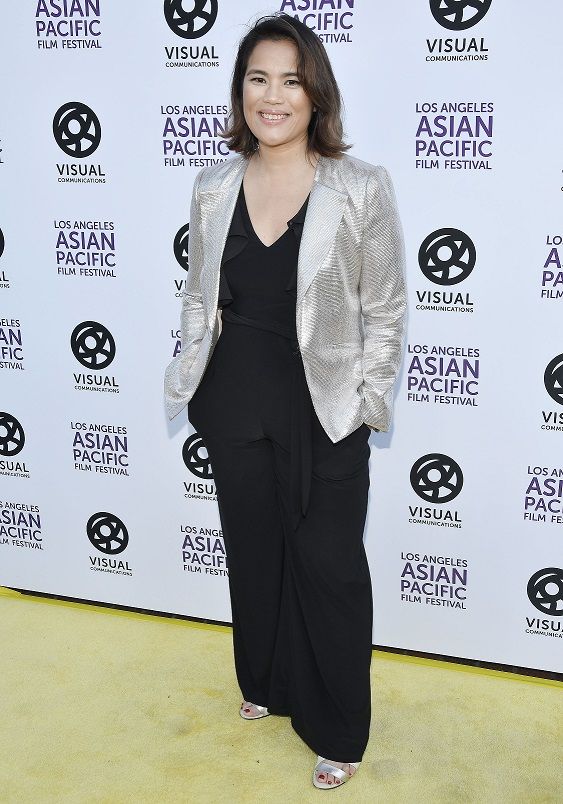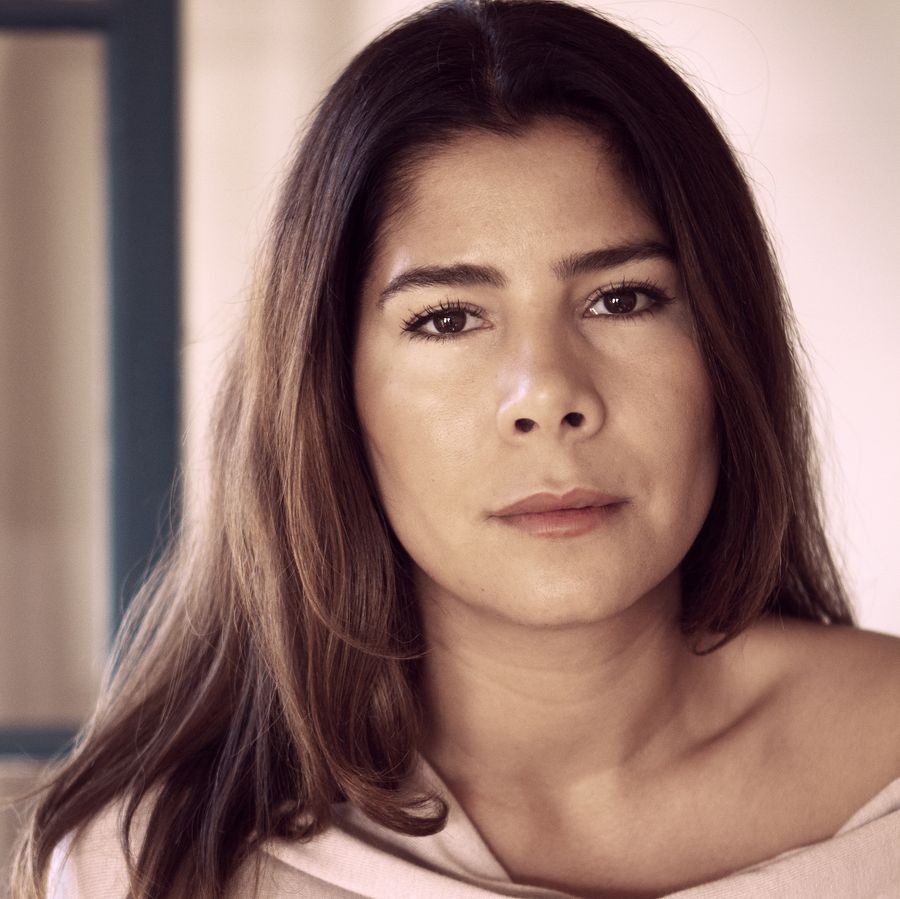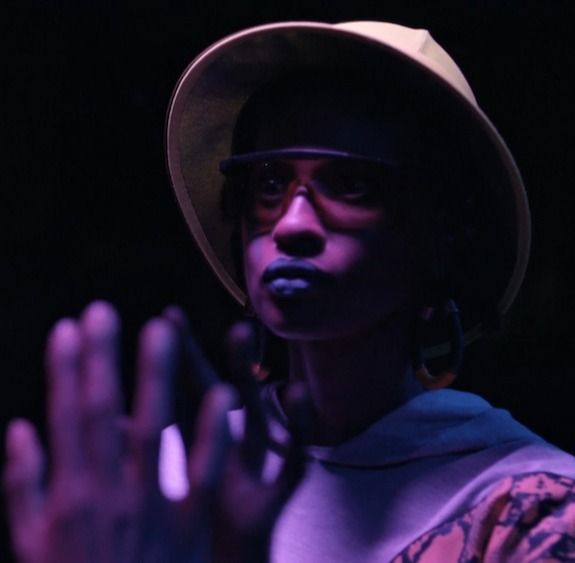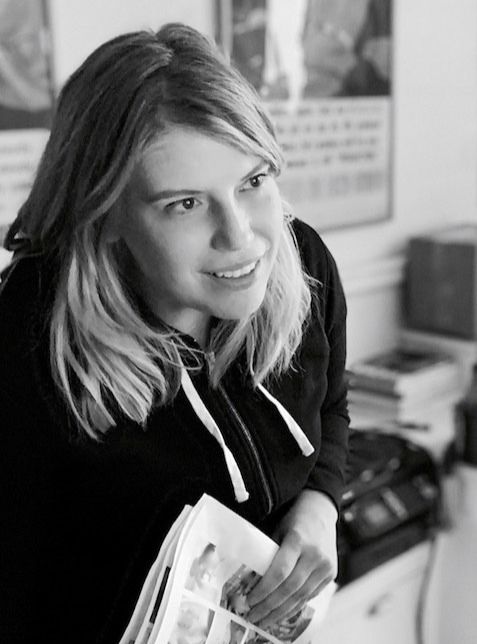For writer/director Diane Paragas, Yellow Rose isn’t only a passion project 15 years in the making, it’s a purposeful platform to boost the visibility of Filipino Americans. The film, starring Broadway breakout Eva Noblezada, tells the story of a young Texas woman named Rose pursuing her country music dreams as her mom’s deportation threatens to tear her life apart. It’s a coming-of-age story set against the immigration crisis that’s sure to get viewers talking. Especially since it’s the first Filipino American film to be theatrically released by a major studio: Sony Pictures Worldwide Acquisitions.
Here, Diane breaks down the journey that led to Yellow Rose, how she tapped Lea Salonga—a superstar in the Philippines—to come on board, and how she captured the sentimentality of Filipino culture through country music.
What made you want to tell an immigration story?
I think if you're a Filipino in America, [immigration is] just part of who you are. Through the years of trying to develop [the film], I also researched a lot about immigration; I had to learn about other people's experiences and the law because as the years went by, attitudes and policies about immigration changed. Shockingly there's not a lot of movies that address it head on the way we do.
What's your family's own immigration story?
My parents met in medical school in the States on the west coast. They got married, my brother and I were born in the States, and then we went back to the Philippines. While we lived there, Marcos declared martial law over the state, and it became very dangerous to live there. So my mom and dad made this split-second decision to try to leave the country. It was difficult at the time because everyone was trying to leave. It was very hard to get a visa and find a way.
The only way we were able to leave was through one of my dad's colleagues from medical school who was starting a medical program in this Texas town called Lubbock. He was able to petition our families. So my older brother and I were US citizens, but the rest of my family—my younger brother and my two parents—were not. At one point, my parents got a deportation letter and were threatened to have to leave the country even though they came legally. Even my own parents who were doctors, that were established citizens, that paid taxes and had a private practice, got deportation letters.
"The other reason I didn't do subtitles was because I didn't want the audience to break the feeling that the characters are Americans; they are one of us. The minute you start reading subtitles, you start to think of these people as the other."
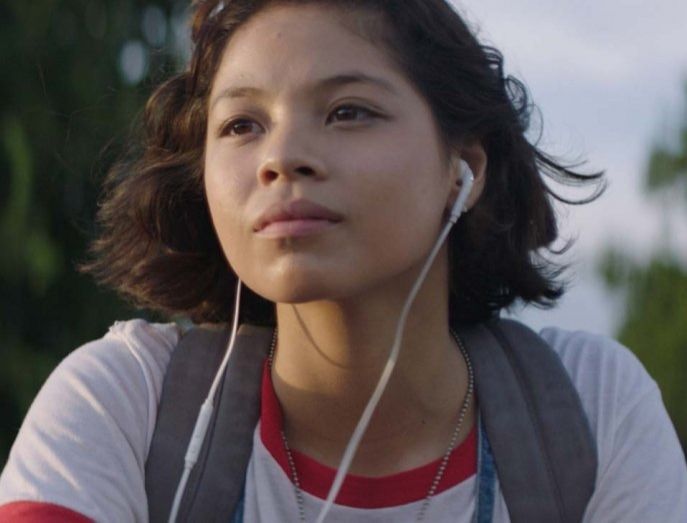
Did the film evolve after Trump got elected?
Oh completely. The script and short before Trump got elected was about a road trip between Dale [Watson] (who plays a country music singer who mentors Eva’s Rose in the film) and Eva. She hides in his bus and then sees the country with him.
But after Trump got elected, I started working with this writer Annie J. Howell. We both felt like we wanted to pump up the immigration part of the story and show more of the journey of [Rose’s mom] Priscilla (played by Princess Punzalan) as she goes through the system. Rose’s primary journey also became about trying to find a home as a person, as an artist, as a citizen, and as an immigrant.
I remember when we shot the ICE scene in Austin, there was an article that came out that same week about how the number of those raids doubled in that year. We were so emotional every time we shot a scene that involved either ICE officers or the detention center. Everyone on the crew was just super upset. I remember how after shooting the scene where Rose’s mom gets arrested, all of us were just crying because we all knew this was happening all over the country.

In terms of ICE, there’s a moment with a sympathetic agent…
That's a big controversial scene, yeah.
What informed that choice? What did you find during your research?
If I had to boil down the film into one word it would be empathy. Based on my experience growing up in Texas, and the experiences of most undocumented young people that I talked to, there are always allies, most of them white, that help along the way.
There were many iterations of that scene. I chose to portray a moment of civil disobedience; I wanted to show this character who made a conscientious decision, a moral decision on his own in that moment. I was super worried about that scene, and I was sure that that would be the one that would be the most controversial and cause people to get upset. Actually, it's been the opposite. Every screening I have, it's oftentimes people's favorite scene and it is surprising. It will be interesting to see when it goes to a wider audience what people will think of that scene.
Did you have anyone close to you that you grew up with that was deported?
Not in my direct family. I knew friends of friends, but certainly members of my family have gone through this sort of process of getting documented or being undocumented at one point.
And also Lea Salonga's character is a very familiar character to Filipino Americans, and any immigrant for that matter. Her character is the one who “made it” that doesn't help anybody else. When Lea read the script, she was like, "Oh I know that person." We all have one member of the family like that.
Why do you think Lea’s character acts the way that she does? Is it fear?
Oh absolutely. It takes so much to get citizenship that after people get it, I think they feel very protective of their status and their position. I hope that in the film I showed that no character is one-dimensional. There's no real bad guy. I don't believe that anything is malicious. Even [Lea Salonga’s character] Tita Gale is not bad; she is just put between a rock and a hard place. Her husband doesn't really want anything to do with her relatives. He married her and not the whole family. There's that to contend with. I hoped it wasn't completely like black and white. In the end she does support Rose in whatever way she can.
"We are musical people. It's in our DNA, it's in our blood. I don't know a single Filipino who doesn't have a very, very deep relationship to music. So it’s natural to tell a Filipino story through music."
The main character, Rose, finds a home in a place that rejects her and leans into something as distinctly American as country music. Was that intentional and what you were trying to say with that?
Oh yeah, for sure, it was definitely intentional. When I was growing up I played music and I had a mohawk. I was in a punk band, purposefully rejecting everything around me as a rebellion. I thought it would be interesting to draw on my own experience and make Rose love the most American thing you can think of, which is country music.
I also wanted to make the film like a Western through the way we shot it and the way Rose goes from town to town like a cowboy. That was also intentional. Even the way we shot her, I did a couple of shots that were sort of tip of the hat to John and the searchers.
The Philippines loves a good love song, so much so that love ballads even have their own name: kundiman. The songs always seem to be coming from a sense of longing. Can you talk about incorporating that aspect into the film?
I have to tell you, if you notice, there's no subtitles in the film. That was also intentional and that is how it is going to be when it gets presented theatrically. In a way it was my gift to Filipino people. I think they will know what it means. Of course, people can look up what “Dahil Sa'yo” means, but I think I wanted the audience to feel the intention of it, but not necessarily need to know the translation. My dad sang me that song when I was a baby. Now they're grandparents to my daughter and they sing it to her now. My daughter is also the little girl in the film!
The other reason I didn't do subtitles was because I didn't want the audience to break the feeling that the characters are Americans; they are one of us. The minute you start reading subtitles, you start to think of these people as the other.
Why do you think Filipinos love music like that? How do you think country music captures that same set of emotions as well?
What's so interesting is that when you listen to “Dahil Sa'yo,” it could sound like a country song. So much of the sentimental songs Filipinos like are very country style—they’re very simple songs with deep emotion. It's been so gratifying when we've shown the film to all kinds of audiences. But particularly Filipinos come up to me and say, "I didn't even know I liked country music, but I love it." If you look on our trailer, there's all these comments about how people loved the music—especially Filipinos.
We are musical people. It's in our DNA, it's in our blood. I don't know a single Filipino who doesn't have a very, very deep relationship to music. So it’s natural to tell a Filipino story through music.
To me, it seems like music for Filipinos is an inherent way to dream, and a way to express.
I think I've been really happy because we've been able to screen the film for many generations of Filipinos, like lolas, titas, and young people in college. And everyone says, "That's us. I recognize myself. That's us." I'm still really proud of that. Just being Filipino I knew what the house should look like. There's little things that we would recognize like the plastic on the couch—just those little details that were very important in making people feel that the film is an authentic portrayal of the Filipino American experience.
One of the things that was again challenging as a filmmaker, and this is something that I think some people don't understand about our culture, is that we are super sentimental, melodramatic people. There's parts in the film that might feel melodramatic to other people, but that's just the way we are.
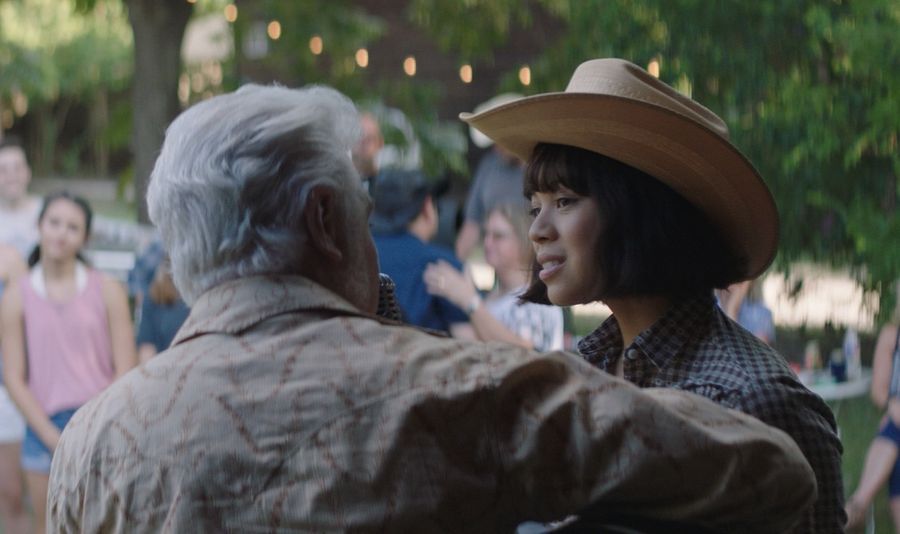
Because it was so distinctly Filipino American, was that a challenge to getting any more funding and getting it made?
Absolutely. Even the casting directors were like, "Can we cast a non-Filipino in the role?" I was like, "No."
Interestingly, even now, as we introduce the film to festivals, there is this perception that the film is small. I'm always like, "Why is it perceived that way?" People don't really know much about Filipino culture. They think we're this small tiny group of people. When actually, we're the second largest Asian minority in the country, and we're the third largest immigrant group. We have one of the largest, most widespread diasporas as well; there’s a lot of overseas workers in the Middle East, in Europe, and other parts of Asia. Because we're so invisible in the media, there's not an awareness that there's so many of us out there.
We are so invisible. I think part of the reason the film is enjoying success is that it's a fresh perspective for other people. They're like, "Oh, a Filipino story, how novel. How interesting. We haven't seen that." And of course we haven't seen a Filipino story, because nobody has let us tell it before.
You also got a grant from ABS-CBN, right?
That's right. For people who don’t know, ABS-CBN is the largest television and film company in the Philippines. They are our principal investors and executive producers. I got the grant through a competition they had held.
We were looking around at the cinema landscape in Asia, and so many films come from Korea, Japan, and China were getting on a world stage. But you don't really see too much of Filipino cinema. So they put this grant out to put a Filipino film on the world stage. The first two people to get the grant were myself and H.P. Mendoza. He made a film called Bitter Melon which came out last year. Ironically enough, after all those years of trying to get financing in Hollywood, Filipinos and Filipino Americans ended up making this film possible.
Can you expand on how the Filipino and Filipino American film community has supported the film?
What's really cool is that we kind of are forming this Filipino film collective because of the Cinematografo festival held by ABS-CBN. Kind of like the three Mexican directors, we're trying to have that same thing. We all support each other. That's been really, really exciting. I can see other [Filipino] filmmakers who are starting to make strides, like Marie Jamora. H.P Mendoza, and P.J.Raval. There's just going to be more Filipino films out very soon, not just ours. For example, Marie curated the [Filipino film day] at Ava Duvernay's Array Creative Campus, and P.J. Raval showed his film [Call Her Ganda] there.
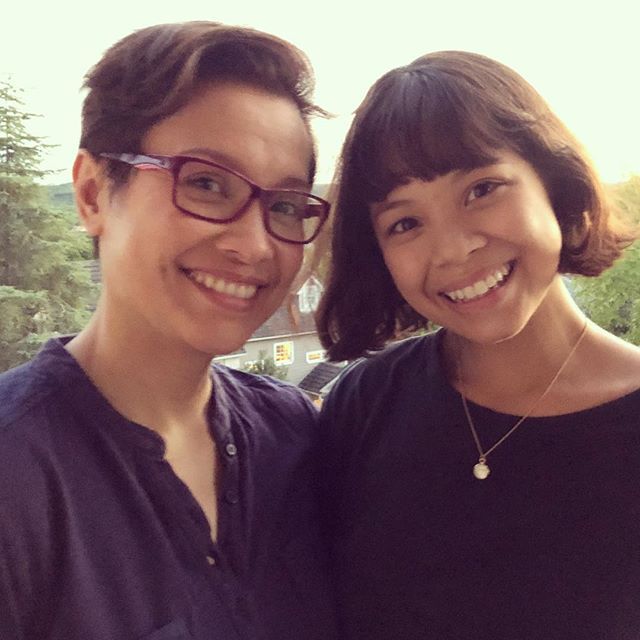
It’s also incredible that you have Lea Salonga, who’s basically the biggest star out of the Philippines.
I remember we were on this massive casting search and I said, "Who is the next Lea Salonga?" She was the only reference we had. Then we ended up getting Eva Noblezada who was the result of the second big search for Miss Saigon. When we got her, I just really wanted Lea to also be in the film. I wrote the part for her, to be honest. Ironically, my very first directing gig I directed her. So we knew each other from a bajillion years ago. She actually remembered.
Lea’s been the biggest supporter and is such a genuine, amazing woman. She has a very successful career as a touring artist and singer and she still does Broadway, but she hadn't made a movie in over 20 years, so to have her kind of come out of retirement for the movies at least was such an honor.
What made her do this one? I'm sure she got a million offers.
I think she responded to the story. Eva also gets a lot of scripts, and she's a young, new performer that chose this as her first film. They could tell I had a great passion and that I would take care of the film. It was a Filipino director. And a woman. I know they both really loved that.
What was that process like working with Eva on the music?
It was always my intention to cast a real musician. I dreamed that we would write the music in character during the shoot. That's what happened with “Square Pegs.” We wrote that song when making the short.
Thia Megia played Rose in the short. We wrote that song on the first day of rehearsals with Dale.
Then a lot of the other songs kind of happened in between. Dale was writing music on his own, too. It's funny, the song that Eva was kind of trying to write in the film, is a song she was trying to write and didn't finish in the actual production. We just had a really crazy 19-day shoot, with super limited funds and one camera.
One camera?
Yeah, it was one camera, 19 days, and a very small crew. There were many, many locations and 20-30 setups a day. It was very difficult to execute. For musical numbers, you ideally have at least two cameras, but we just couldn't afford it. Having only one camera forces you to be more decisive in your directing and to really know what you want. Many of the shots were one-takes. We just didn't have time. It really helped that we had such an extraordinary cast. That really made it possible.
"The entire film was shot handheld . . . We were on the move, and every shot is in motion. That was also thematically intentional because she's basically constantly on the move. That's the life of a migrant. There's just this constant sense of checking your back."
Who's your DP?
My DP is August Thurmer. It's his first film. But he's well known as a commercial cinematographer. He does documentaries as well. He grew up in New Mexico and has a real deep sense of the countryside. He loves country music, too. He just was the right guy, had the right soul. Also, the entire film was shot handheld. That's another way we were able to make our days. We were on the move, and every shot is in motion. That was also thematically intentional because she's basically constantly on the move. That's the life of a migrant. There's just this constant sense of checking your back.
Did you have other friends contribute to the film as well?
Oh yeah. August owns the Alexa, so that was a big money save. A lot of the crew just deferred our fees, or just got paid very little. People were working beyond their hours of the day. Everyone put their heart and soul into it because we all felt like we were making something special.
In terms of post-production, did you run into any challenges finishing the film? Did you have enough funding?
Yes and no. Because I'm a commercial director, I work with a lot of post houses and I have relationships with post houses here in New York. I had two super seasoned professionals helping me through the sound and the color. We got incredible deals from Gigantic, and Company Three did our color. They just really supported the film and did it for whatever we had in our budget because they believed in it. I'm super grateful because the sound and the color correction are what I think brings the film to that next level.
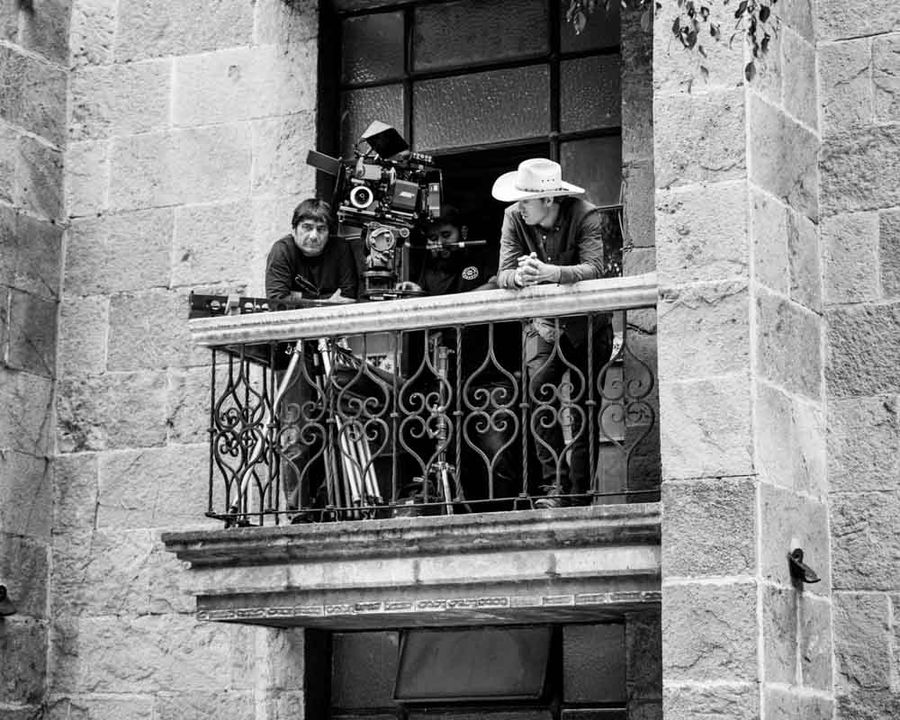
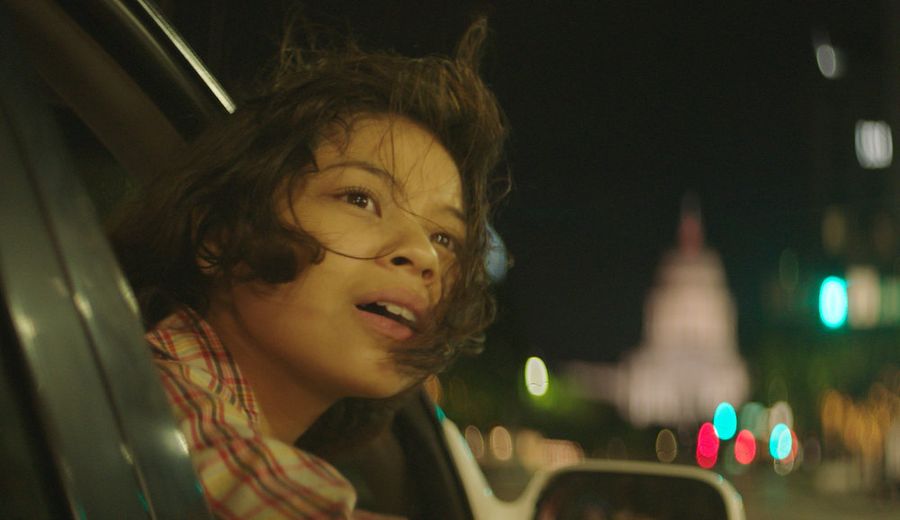
What do you hope this film leaves with audiences?
I hope that at the very least, the film gives you a glimpse into this young woman's life and what this situation did to her, without slamming you over the head with politics. I also hope that it brings joy through music and through this experience of going to the movies. I like so many different kinds of movies, but the ones that are most satisfying are the ones that just sort of rip your heart out. Something comes up inside of you that brings up your own experiences. When I've been at screenings where people just bawl in front of me and hug me and stuff, I know I did something right.
I feel like that goes back to the sentimentality and the love songs.
Absolutely. I said to my producer, I said, "You know what? I'm not going to apologize, but this movie is going to be corny at times." Because we—Filipinos—are corny. That's why we love corned beef. [Laughs.] We are going to own it.

